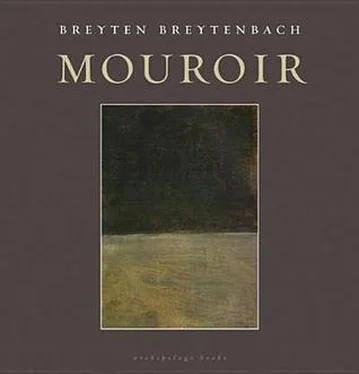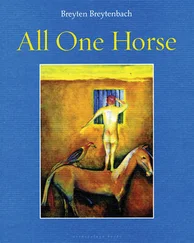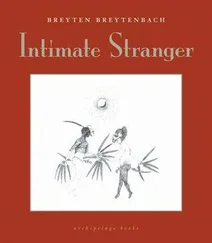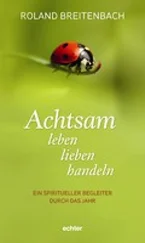However and wherever it might have been, a feeling of betrayal clings to the memory. Something like a blue line. A blue line over salt-encrusted planks. But also over the people. Or in him too? Shipwreck? He doesn’t think so. He had a rank taste in the mouth. The faces of fellow travellers by the lantern’s light, bobbing shadows over nose-bridges and cheekbones, and shards or sparks in the suspicious and furious eyes? He sat leaning his back against the wooden ribs and could sense the sea lapping at that creaking partition against his spine. And a blue beam. The other men talked about it.
Later he was on a beach at low tide. At ebb the sea withdraws a long way, like a huge thirst, and exposes an area of black sand. The force of the currents and spring tide along these parts washes benches and ridges in the sand so that fingers of water shine in all directions over the laid-bare territory. In places there are naked rocks which, with different tides, would be covered by water and foam. There is a stench — the damp sand, the gullies, the rocks — as strings of seaweed and bamboo, half-digested crabs, putrid prawns, debris and floatage of every kind and origin are strewn all over. Also many empty plastic bags, containers, condoms. The cloacae of a nearby town probably run into the water here. Although a wind is gathering speed it in no way upsets the gnats and the sandflies hovering over the waste and the oozing rubbish. They are vibrating questions in the air, questions which will strip everything bare if only they were given time and tide to do so.
He is here with the prince. Off to one side of the beach, just about where it runs into a steep rock cliff, he finds three hats which, miraculously, are brand new and still dry. The wind is slightly cut off here but when it capriciously grabs hold of one of the headgear to send it spinning like a wheel over the sand, the booty is very nearly lost. But then he succeeds in retrieving and keeping all three. From far away the prince espies the loot and comes running with pale ankles to claim his share, the part of a prince, this, the best hat which with smooth fur is practically a mirror in the sun.
He is enraged but obliged to satisfy his lordship. He has to content himself with the smallest hat, a brownish porker with a very narrow brim, limp and with not even a feather. He pulls the little hat right down to his ears so that the crown may fit deep and tight over his hair. Then he sees how the prince, Albert, drops his watch in the dark sand and vengefully he puts his foot over it to push it even deeper into the stickiness so that just the glass over the dial protrudes like the one eye of a pair of glasses squinting into the sun. Albert stands at the foot of the rock barrier, crying with one hand fisted before his eyes and with the other holding down his new hat, crying because of the watch he lost. Through his tears Albert sobs that he wishes to return home.
Now he pities Albert; and besides, he is afraid of what might happen if the prince were to start sulking angrily. Thus he runs back to the hidden watch and digs it up with long finger and index. He holds it up in one hand, swinging by the strap, nearly a tacked-on wrist, and jumps up and down. Shouts against the wind at Albert standing diminutive by the rocks: “Look what I found! I have it! I have it!” In the immediate vicinity he discovers four more timepieces which he stuffs in his pocket although not one of them ticks as swanky as the prince’s; in fact, two are pumping rather irregularly with little spastic leaps. He also finds, partially silted up under a stone, something which at first he doesn’t recognize. Upon closer inspection it turns out to be a long string of jewels, little ones with in-between sapphires as big as beetles with light bulbs in the bowels. Then he realizes that it must be a rosary since a small image dangles at one end, carved most likely from ivory, of the Christ with pulled-up legs on the cross. The nails gave him cramps. No bigger than a locust and just as leggy. The legs so twisted that they might be artificial, and the cross a wee crutch. He thinks that the carving will fit well in his slightly cupped palm, like a dead locust. The string too he surreptitiously pockets with the intention of cleaning it later and then giving it to his wife as a present. Findings keepings. Spoliatus ante omnia restituenda est . Then he jogs to where the prince waits. Long trails of a blubbery substance of dubious origin lie in all shapes on the banks of the furrows washed in the sand. A stickiness clings to his feet. When running he rouses swarms of seabirds — gulls and sandplovers and cormorants — like tatters and tears they wail and call names above his head.
With the prince he climbs up the perpendicular rockface. There are steps and twisting tracks hacked from the façade. Where no other way could be found tunnels and chimneys were cut in the rock itself, higher, ever higher. This road-making — brilliantly conceived and executed — still continues endlessly. From all over there are the sounds and the reverberations of rock drills, small explosions, pickaxes, crowbars, spades and trowels, the squeaking of ropes over pulleys hoisting buckets of gravel and letting down buckets of mortar. The slope with its ledges, niches, rocky outcrops, crannies and holes, is alive with labourers. Simultaneously however it serves as the favourite nesting and breeding place of several kinds of seabird. These birds are incessantly chased off but they remain hanging from the sky above their nests, or where their nests were supposed to be, with gaping beaks and poisonous beady eyes and the gullets full of horrible scissor-cries. It has happened that some workers were attacked. Usually the birds only peck out the eyes of the people. Several day labourers have bandages over their eyes, or dark glasses. Some of them, tougher than most, aren’t at all concerned about their appearance; their eye sockets are yawning raw wounds like overripe figs left on the branch for the go-away birds. The workers who can still see lead their blind comrades by the hand to their work stations. Many have been posted here since such a long time and now know the inclines so thoroughly that they can find their way on their own despite their want of sight. The whole scene is flooded by a tremendous din: that of the workers and their tools, the yodelling of the eyeless ones, the gnashing and croaking and hissing of gulls, and above all the lowing of the wind through crags and hollows and alleys and around corners. The workers have a supplementary task too, namely to whitewash the smooth pebbles at the foot of the wall. And this duty must be fulfilled once every twenty-four hours (the small stones of Sisyphus!) as the incoming tide rubs off the paint just as the outgoing ebb will suck in most of the pebbles or bury them under a filthy goo. . Day and night the labour continues. At night lamps and torches and lanterns are made to stand in every available hollow or hung from nails and wedges driven into the rock. Then it has the air of a festively decorated pleasure boat struggling to rise above the waves.
For lunch the labourers partake of tomatoes from brown paper bags. When the prince moves up or down the labyrinth all must get out of his way. Like monkeys they scatter up the steepest slopes or go to squat on the ledges; they hate these interruptions and with bared gums they snarl the most awful curses and imprecations at the prince and his retinue. Luckily the contents of their words are entirely blown away by the thundering elements. Some of them moan like birds of the sea.
With difficulty he climbs upwards all behind Albert. In front of them the men clamber out of their path. One worker has large shoulders and jade-black eyes. His name is Angelo Giovanni and he is of Polish descent. Angelo Giovanni glowers at them with eyes like torn-open ant-heaps before climbing nimbly up the rockface along an uncharted route running parallel to the path whilst holding on fast to his bag of tomatoes. When, several metres higher, they emerge from a pot-hole, Angelo is already sitting on his heels on a traverse off to one side and slightly higher, staring at time. The black-eyed labourer takes aim and then throws an overripe tomato very precisely. The missile whistles over Albert’s shoulder and explodes in his face where he follows in Albert’s steps with bent knees. The red meat and the gluey pips spread over his eye and cheek. Thirty metres along to the right a blind slave with neither headcloth nor blinkers gets up from where he was haunched on an outcrop, thrusts his two clenched fists in the air and crows triumphantly: “Holy! Holy! Thus he got his eye back!” Then, with a graceful plunge, he dives into space, and is smashed to pieces in the dizzy distance on the slimy beach down below. Light, which was a skein over the sand, is now blotched. Immediately the seabirds descend in screeching flocks. From up here they seem to be scarcely bigger than gnats around a scarecrow. White wings flapping over the ragged cadaver. Expression.
Читать дальше












